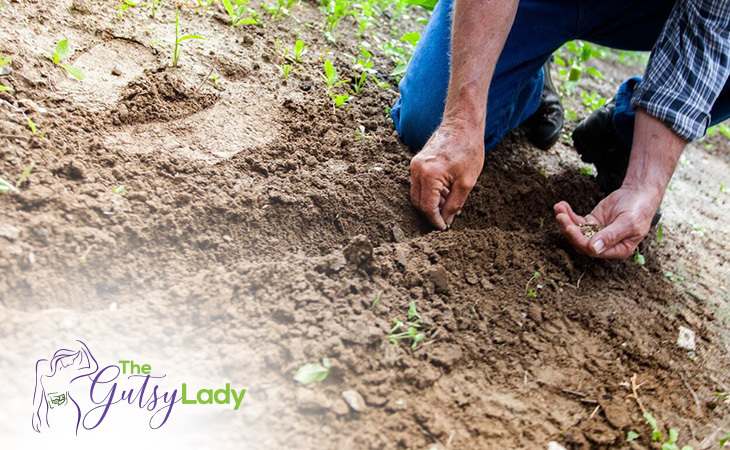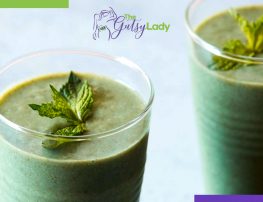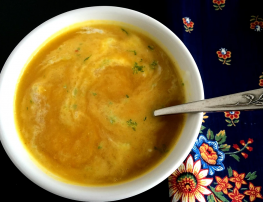Gut Support, Health News
TheGutsyLady > Blog > Gut Support > Is Gardening Good for Your Gut?
Is Gardening Good for Your Gut?

One of the areas of research that has generated some buzz is the fact that digging in the dirt, or gardening, might actually be good for our gut health. And it is becoming increasingly evident that good gut health is important for the functioning of our immune systems. Read more and take a look at what the relationship is between getting dirty through gardening and being well.
Then, contact The Gutsy Lady today for a free conversation with our health expert, Diane, to get your questions answered about the gut challenges you might be living with. We are here to help. Text or call: 760.296.7126.
The Hygiene Hypothesis and Your Health
Discussion as to any positive relationship between dirt and health has been prompted by a theory known as the “hygiene hypothesis”. The hygiene hypothesis suggests that keeping kids too clean is contributing to the higher rates of autoimmune diseases, especially in terms of atopic disorders (allergies).
The hygiene hypothesis was first posited by a man named David P. Strachan who attributed the rise of allergies to the fact that family sizes were getting smaller. In his theory, fewer children were getting exposed to pathogens through contact from their “dirtier” older brothers and sisters.

Strachan’s original hypothesis has been expanded to include the effect of the increased attention to hygiene that is inherent in modern society. Beyond the basics of hot water and food safety practices, the list would the use of antibacterial cleaning products, the increased frequency of antibiotic prescriptions, and the use of vaccines. And kids no longer spend much of their time playing outside and getting dirty. (Nor do non-gardening adults for that matter.)
The hygiene hypothesis holds that these societal changes have reduced the likelihood that children are being exposed to the types of bacteria that cause infections at an age where their bodies would be programmed to develop immunity. When exposed to such pathogens at later ages, the body is less equipped to deal with them, and ongoing problems ensue.
It is thought that the protective element of early childhood exposure to pathogens affects the development of cells within the gut-associated with the response of our immune systems. There is some limited evidence that the makeup of the gut flora of children who suffer from allergies is different from those of allergy-free children.
As for digestive health, there is a growing body of research that exposure to certain microorganisms may play a role in the increased prevalence of inflammatory bowel disease (IBD). The higher your socioeconomic status, the higher your risk for developing IBD — a finding that may be consistent with the hygiene hypothesis.
The hygiene hypothesis has been met with mixed reviews by researchers. The current consensus seems to be that there is a relationship between changes in our overall exposure to certain microorganisms and the rise in allergic and autoimmune diseases. There is some talk about changing the name, to better reflect the microbial aspect of the problem and to ensure that people continue to observe good, basic hygienic behavioral practices.
Washing Up Is Still Important
Please note that the hygiene hypothesis doesn’t imply that you shouldn’t be washing your hands when they are dirty. When you work in the soil, you are being exposed to microorganisms through touch and breathing. It is still a very good practice to thoroughly wash your hands when they are dirty, after being out in public, after using the toilet, when around someone who is sick, after sneezing or coughing, when cooking, and before eating.
Health Benefits of Gardening
Although we may not yet have a clear picture as to the specific digestive health advantages of working in the dirt, there are plenty of other health benefits to be enjoyed through the activity of gardening, some of which may translate into a positive benefit for your digestive system.

Gardening is a green exercise: Recent research has been uncovering some additional health benefits when one participates in exercise in the great outdoors. Green exercise has been associated with self-reports of increased feelings of well being and improvements in mood. Given the close connection between our brains and our guts, one could postulate a theory that the positive mental health effects of a green exercise like gardening would have a subtle, positive effect on digestive functioning.
Growing your own foods reduces your exposure to toxins: If you choose to garden organically, you are reducing your exposure to pesticides, fertilizers, and other chemicals. Long-term exposure to these chemicals has been associated with the development of cancers and other health problems. As for your digestive health, eliminating these additives eliminates the chances that your system might have a negative reaction to such, resulting in digestive distress.
Home-grown organic food contains a higher amount of vitamins and minerals: These nutrients are essential to overall health and therefore are likely to have a positive influence on your digestive health.
Gardening is an activity that can be enjoyed close to home: If you suffer from a chronic digestive health problem, such as IBS or IBD, gardening provides a great home exercise option, as you can enjoy the security that comes from being near to your own bathroom.
Getting Started With Your Own Garden
A garden can be as small or as large as you choose. Options include a garden on your property, participating in a community garden, or simply growing some flowers and vegetables in a pot in a sunny area. Whatever option you choose, it certainly seems like it might be good to get dirty sometimes.
Reference: {https://www.verywellhealth.com/is-gardening-good-for-your-gut-1944835}









